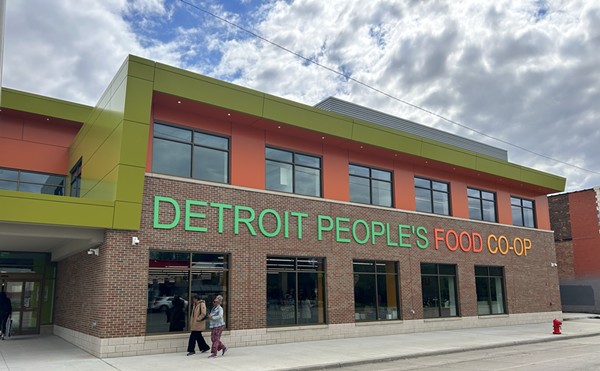U.S. PIRG report says $1.5 billion I-94 widening could make Detroit's recovery 'more difficult'
[
{
"name": "GPT - Leaderboard - Inline - Content",
"component": "35519556",
"insertPoint": "5th",
"startingPoint": "3",
"requiredCountToDisplay": "3",
"maxInsertions": 100
}
]
The other day, we were notified of a soon-to-be-released report from the United States Public Interest Research Group (U.S. PIRG) that labeled the proposed widening of I-94 in Detroit a "boondoggle."
The report, released today, calls into question the decision-making of 11 massive highway projects across the nation, with costs expected to exceed $13 billion in total. As the report highlights, these expansive highway infrastructure projects comes at a time U.S. driving trends have changed: For instance, since 2005, the total number of miles Americans have dropped 7 percent.
Even so, our state and federal government continue to spend billions on highway projects "based on outdated and obsolete assumptions, says Phineas Baxandall, U.S. PIRG senior analyst and co-author of the report, in a statement.
“The time has come to shift our resources to invest in 21st century priorities, like fixing our roads and bridges and providing more Americans with a wider range of transportation choices," Baxandall says.
Many of the points highlighted in the report were covered in a Metro Times' cover story on the project back in January 2013.
In Detroit's case, the U.S. PIRG report says, the $1.5 billion I-94 proposal, which would widen a seven-mile stretch of the highway between Conner Avenue and I-96, "might even make Detroit's economic recovery more difficult by further separating two neighborhoods that have been leading the city's nascent revitalization" — Midtown and New Center. (It's worth noting, projected costs for the project have varied over time, so chances are you'll see different figures.)
One of the issues the report takes with the Michigan Department of Transportation's (MDOT) decision to widen I-94 is that it's based on outdated forecasts and projects from 2003, which show vehicle miles traveled would spike 11 percent by 2005. Of course, that hasn't been the case. "Instead, these miles had already fallen 14 percent by 2013," a news release from U.S. PIRG points out.
“The plan to widen I-94 is likely to increase traffic volumes, congestion, and air pollution over the long term in a city where adult asthma rates are more than twice as high as the state average, and which contains 5 of the top 25 most polluted ZIP codes in Michigan," said Nick Schroeck, Executive Director of the Great Lakes Environmental Law Center, in a statement.
As Schroeck points out, Michigan's fifth-most polluted ZIP code, 48211, lies smack dab in the center of the project's proposed span.
In the news release, U.S. PIRG says Michigan has a dearth of recourses to repair its infrastructure, which includes 11,000 bridges deemed "structurally deficient," according to the Federal Highway Administration's 2013 National Bridge Inventory.
Says Baxandall: “That’s 11 thousand reasons not to waste Michigan tax dollars on widening I-94 through Detroit.”
Megan Owens, executive director of Transportation Riders United, says in a statement that, "[I]t is wasteful to spend billions of dollars to add additional lanes to our roadways. While I-94 certainly needs to be repaired, tearing out pedestrian bridges and widening this throughway is unnecessary and wrong for our community."
Owens says a sliver of the I-94 widening's projected costs — only 3 percent — would cover the funds needed to build a proposed commuter rail line between Detroit and Ann Arbor, "providing a real alternative to I-94."
You can check out the full report here.






